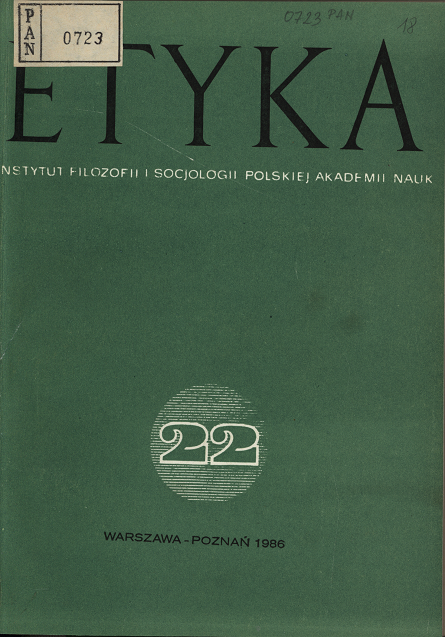Umowa społeczna według Jana Jakuba Rousseau
Abstract
The author starts with recalling, primarily in reliance on Du Contrat social the main clauses of the social contract. Then he advances arguments to show that the text of The Social Contract admits of two interpretations of Rousseau’s theory of the social contract. In the first interpretation, the state which is produced as a result of the contract is viewed as the environment in which man fulfils his moral calling; it is the state that by social actions people can discover and pursue moral values while preserving their individual freedom and sovereignty. The other interpretation implies that Rousseau had little respect for the individual person’s freedom and moral sovereignty, because both the construction of the “political machine” and its first decisive motions are dependent on the law-maker, a factor independent of the contracting parties, who is expected to take care of the unenlightened masses to transform them into a society reminiscent of those of Republican Rome or Sparta. In conclusion, the author advances the conjecture that the tensions pervading the theory of the social contract bad their source In certain deeper beliefs by which Rousseau abode also e his literary and educational work. Those beliefs included his distaste of modern civilization, his belief in the unconditional supremacy of moral values, his admiration of freedom, moral sovereignty and integrity, his belief that freedom is a most fundamental value, and his commitment to the kind of social ties which he saw embodied first in Geneva and most perfectly in Sparta.Downloads
Published
Issue
Section
License
Works published in ETYKA are available under the Creative Commons Attribution No Derivatives 4.0 International Licence (CC BY-ND), which entails acknowledgement of authorship without derivative works. Under this licence, Authors keep their copyrights and agree that their works can be used again legally for any purpose, including commercial ones, except for the creation of derivative works, without the need to obtain previous consent of the Author or publisher. The articles can be downloaded, printed, copied and disseminated; under the condition that the authorship is indicated accordingly, together with the place of original publication. The Authors preserve their copyrights to the above-mentioned works without any limitation whatsoever.



